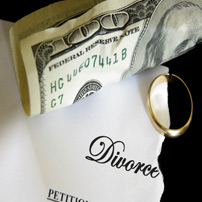 When one or both spouses have significant assets, complicated issues may arise during a divorce. As you begin to make a plan in favor of equitable distribution of assets in high net worth cases, unreported income and hidden assets may come to the forefront during divorce proceedings. For business owners and high-net worth families, it is common for a spouse to hide assets, especially when divorce is planned.
When one or both spouses have significant assets, complicated issues may arise during a divorce. As you begin to make a plan in favor of equitable distribution of assets in high net worth cases, unreported income and hidden assets may come to the forefront during divorce proceedings. For business owners and high-net worth families, it is common for a spouse to hide assets, especially when divorce is planned.
Finding Hidden Assets
Although it is often difficult to hide assets when a standard W-2 form is used to determine yearly income, one or both spouses may hide assets in order retain wealth and property following a divorce. If you believe that your spouse has hidden assets, it is best to speak with a qualified divorce lawyer, but common red flags that may point toward hidden assets include: depositing paychecks into a separate account, having credit card statements mailed to a work address, disparities between marital assets and spending compared to reported income, and prior dishonesty when reporting income to the IRS.
The process of uncovering hidden assets is often difficult and lengthy and includes multiple levels of investigation if a spouse is uncooperative in providing financial statements. Divorce lawyers will use various formal discovery procedures to uncover hidden assets which may include:
- Demanding financial documents – A lawyer or court order will require that the spouse in question provide financial documents, including tax and bank statements.
- Interrogatories and testimonies – A spouse may be requested to provide answers to questions or admittance to statements in writing, or they may be required to provide testimony on financial matters under oath.
Information that can and should be reviewed by a divorce lawyer includes: income tax returns; refunds; checking and savings account statements; canceled checks; credit card receipts; credit reports; insurance statements; off shore account information; loan applications; public records; money market funds; stock information; and cash flow procedures (if the spouse owns a business).
How Are Assets Hidden?
Typically, hidden assets are placed in the hands of a third party or are hidden behind false documentation. In general, there are two types of assets that are easy to hide including:
- Monetary assets – May include cash, bonds, mutual funds, insurance policies, annuities, stocks, and travelers’ checks
- Personal property – Such as art, jewelry, collectibles, antiques, vehicles, and property
Assets are often hidden with the help of a friend or family member through the use of a different name or address. It is not uncommon for these items to be placed into safety deposit boxes or bank accounts registered to a friend or family member. In some cases, funds or objects of value may be transferred to friends or family members through various excuses including repayment of fake debts and gift purchases.
Business owners may use corporate entities to conceal assets as well by paying salaries to nonexistent employees, or providing pay for services that may not have been completed, only to receive the funds after the divorce procedure is complete.
West Chester Divorce Lawyers at Eckell Sparks Assist Clients in High Asset Divorces
If you are considering divorce, contact an experienced West Chester divorce lawyer at Eckell, Sparks, Levy, Auerbach, Monte, Sloane, Matthews & Auslander, P.C. to discuss your legal options, especially in high asset cases. With conveniently located offices in West Chester and Media, Pennsylvania, we serve clients in Chester County and Delaware County. Call 610-565-3701 to schedule a confidential consultation today or submit an online inquiry.

